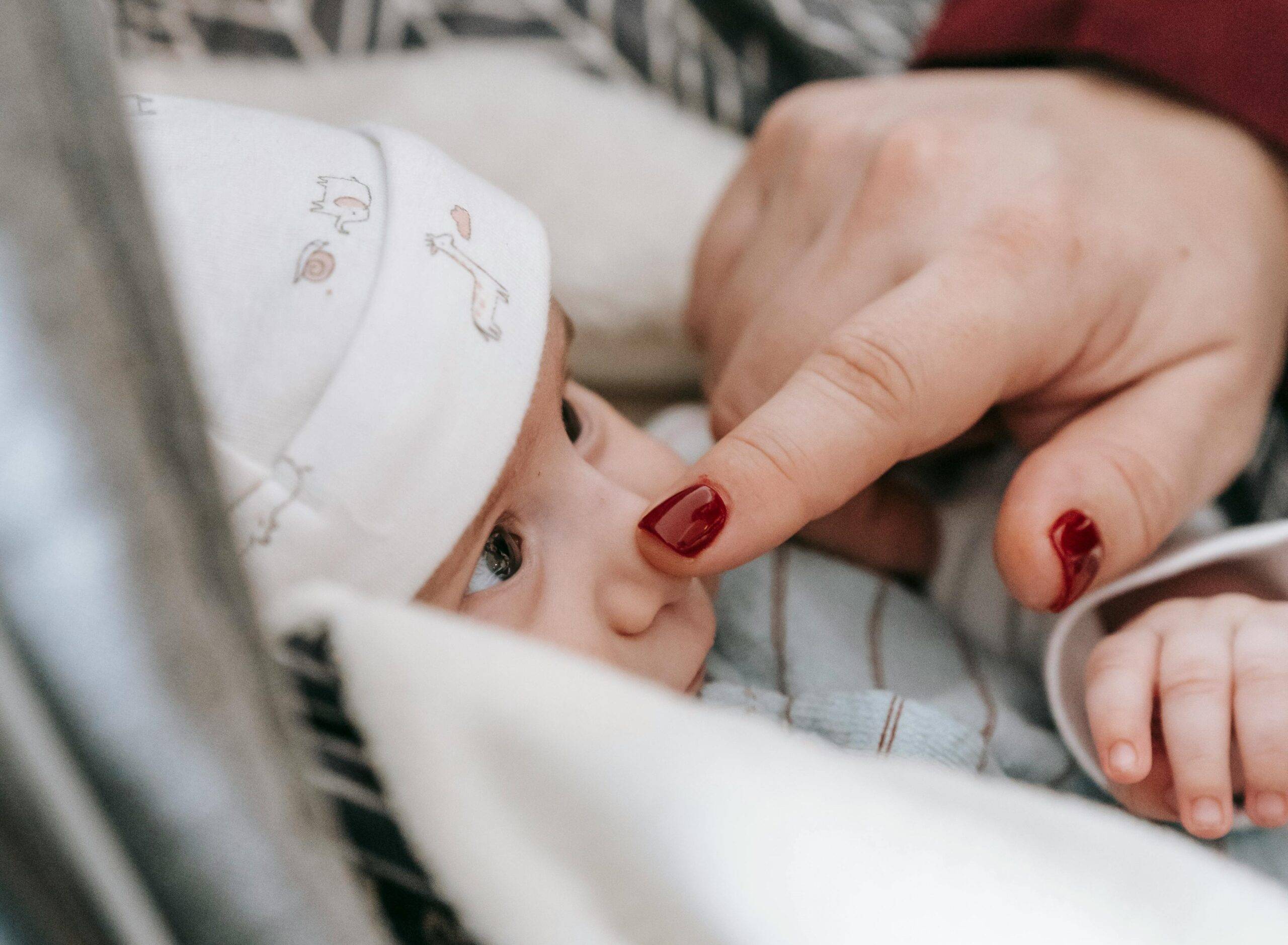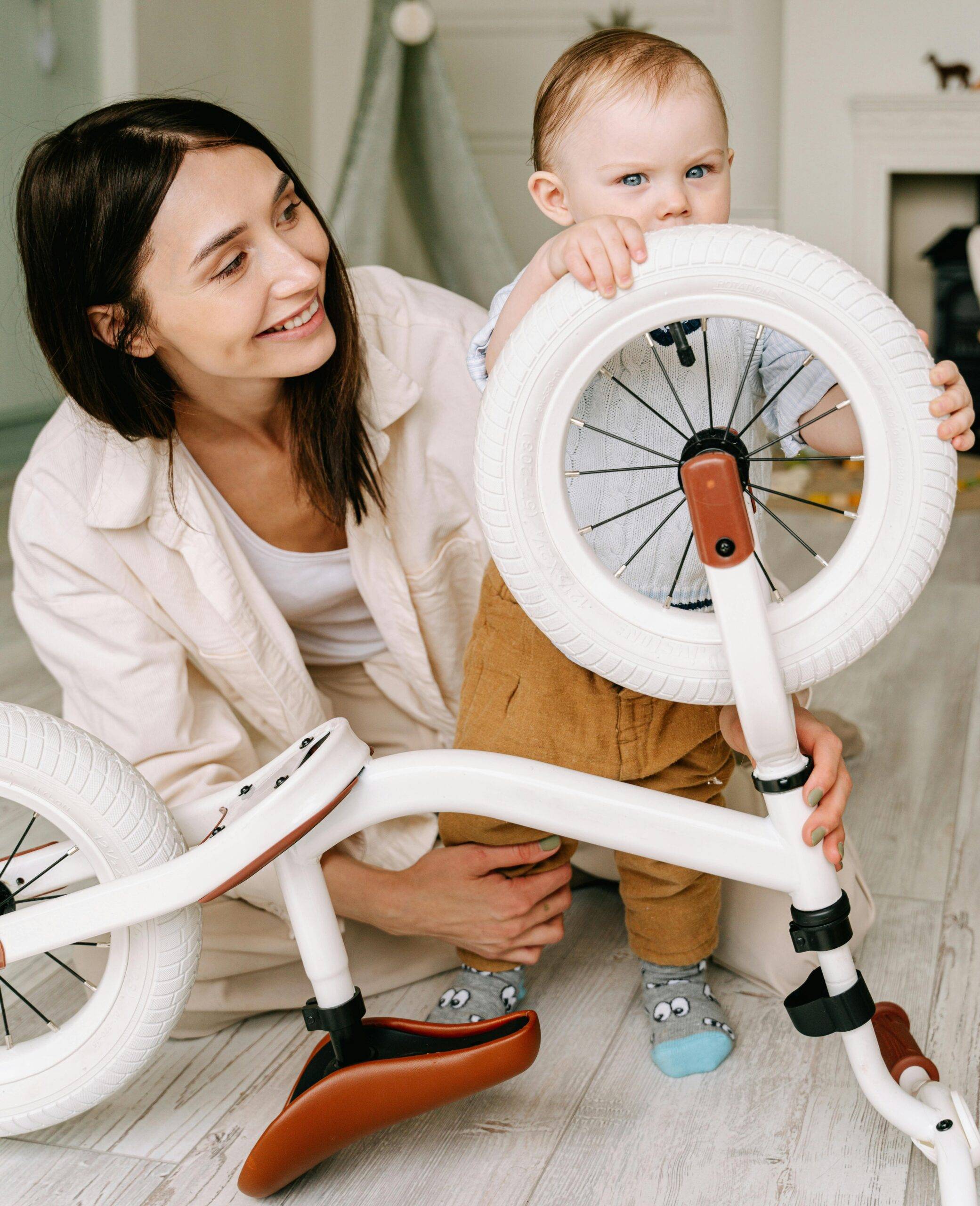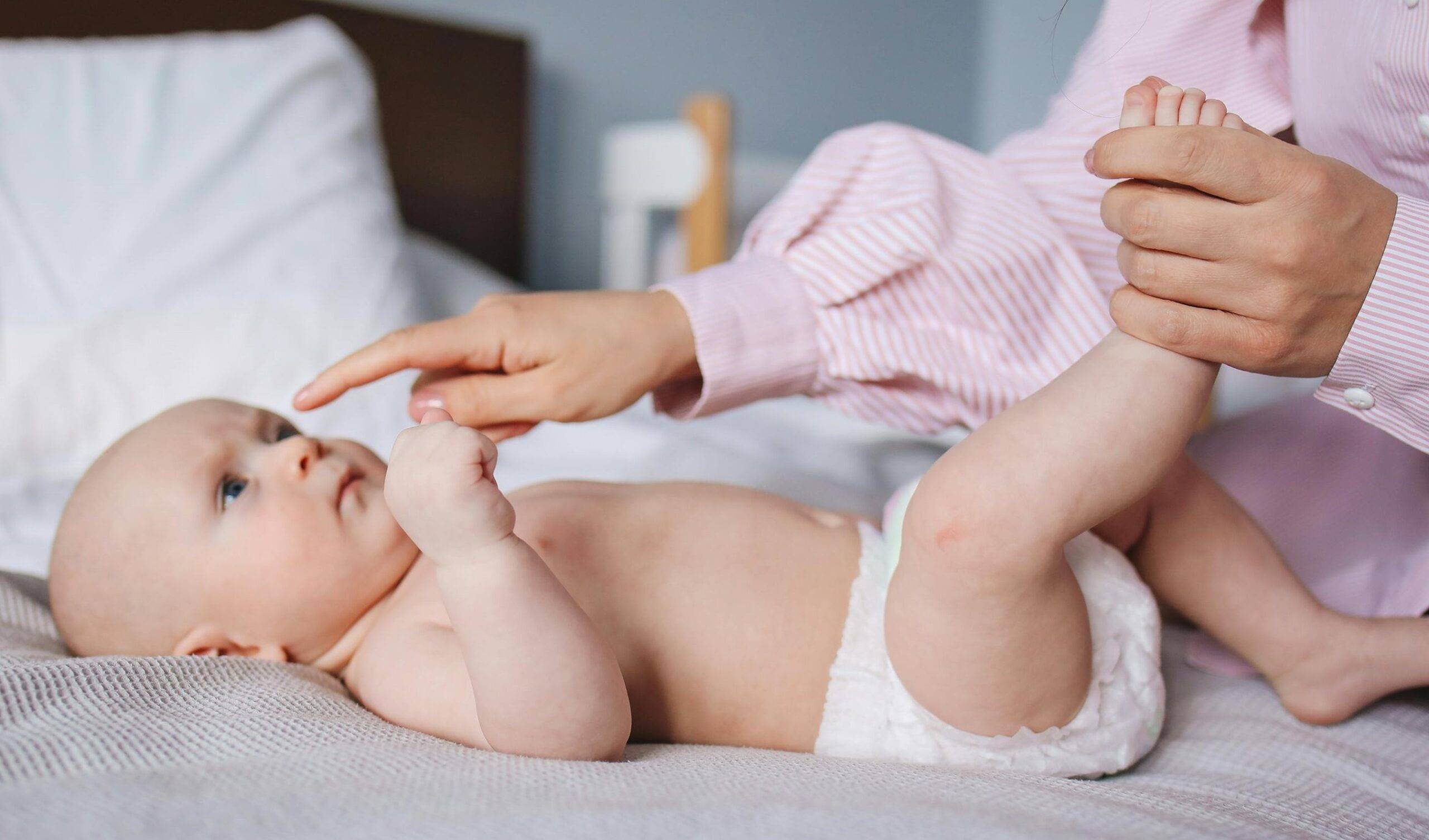When Sniffles Strike
As a parent, watching your baby struggle with colds can be heart-wrenching. The tiny sneezes, the stuffy nose, and the restless nights can leave both of you feeling exhausted. But take heart—colds are a common part of infancy, and with the right care, your little one will be back to their cheerful self in no time.

Babies are particularly susceptible to colds since their immune systems are still developing. It’s not unusual for infants to catch several colds in their first year. This guide aims to help you recognize the symptoms of colds in your baby, provide comfort during their illness, and know when it’s time to seek medical attention.
Why Colds are Common in Babies
Developing Immune System
Newborns come into the world with immature immune systems, making them more vulnerable to viruses. As they grow and are exposed to various germs, their bodies learn to fight off infections, gradually building immunity.
Exposure in Group Settings
Babies who attend daycare or have frequent playdates are exposed to more germs. While social interaction is beneficial for development, it also increases the chances of catching colds.
Exploring the World Through Their Mouths
Babies explore their environment by putting objects and their hands into their mouths. This behavior is a normal part of development, but also a common way for viruses to enter their bodies, thus contracting colds.

Recognizing Cold Symptoms in Babies
Identifying a cold in your baby can be challenging, especially since they can’t express how they feel. Here are some common symptoms to watch for:
- Runny or Stuffy Nose: Mucus may start clear and become yellow or green as the cold progresses.
- Sneezing: Frequent sneezing is a common sign of a cold.
- Cough: This can be dry or wet and may worsen at night.
- Fussiness or Irritability: Your baby may be more irritable than usual.
- Difficulty Feeding: A congested nose can make it hard for your baby to suck and swallow.
- Mild Fever: A low-grade fever is common, especially in younger infants.
Most colds in babies are mild and resolve within 7-10 days. However, it’s essential to monitor symptoms and consult your pediatrician if you’re concerned.
Providing Comfort and Care at Home
While there’s no cure for the common cold, several strategies can help alleviate your baby’s discomfort:
1. Nasal Suction
Babies can’t blow their noses, so using a bulb syringe or nasal aspirator can help clear nasal passages. Gently suction your baby’s nose before feedings and bedtime to make breathing easier.
2. Saline Nasal Drops
Saline drops can loosen thick mucus, making it easier to remove. Place a few drops in each nostril, wait a minute, and then use a bulb syringe to suction out the mucus.
3. Cool-Mist Humidifier
Adding moisture to the air with a cool-mist humidifier can ease congestion and help your baby breathe more comfortably. Ensure the humidifier is cleaned regularly to prevent mold and bacteria growth.
4. Ensuring Hydration
Offer frequent feedings of breast milk or formula to keep your baby hydrated. Proper hydration helps thin mucus and prevents dehydration.
5. Safe Positioning
Elevating your baby’s head slightly can help with nasal drainage. Place a wedge under the crib mattress or elevate the mattress supports. Never place pillows or blankets in the crib, as they pose a suffocation risk.
6. Gentle Back Rubs or Chest Taps
Lightly tapping your baby’s back or chest can help loosen mucus in the lungs. Always consult your pediatrician for proper techniques.
7. Avoid Cold Medicines
Over-the-counter cold and cough medicines are not recommended for infants and young children, as they can have serious side effects.
When to Seek Medical Attention
While most colds are harmless, certain symptoms warrant a call or visit to your pediatrician:
- Fever in Young Infants: Any fever (rectal temperature of 100.4°F or higher) in a baby under 3 months old requires immediate medical evaluation.
- Difficulty Breathing: Signs include rapid breathing, wheezing, grunting, or skin pulling in between ribs or at the neck.
- Poor Feeding or Signs of Dehydration: Fewer wet diapers, dry mouth, or sunken eyes can indicate dehydration.
- Severe or Persistent Cough: A cough that worsens or doesn’t improve after a week should be evaluated.
- Unusual Lethargy or Irritability: If your baby is unusually sleepy, difficult to wake, or inconsolable, seek medical attention.
- Symptoms Worsen or Don’t Improve: If your baby’s symptoms persist beyond 10 days or worsen, consult your pediatrician.
- Ear Pulling or Excessive Crying: These may be signs of an ear infection.
Prevention: Keeping Colds at Bay
While it’s impossible to shield your baby from every single germ—especially as they grow and explore—you can definitely reduce their risk of catching colds with some smart, simple habits. Think of prevention as building a bubble of safety around your little one. Here’s how to do it:
Frequent Handwashing
This is the #1 way to stop the spread of cold viruses. Everyone in the household—parents, siblings, babysitters, and visitors—should wash their hands with soap and water before touching the baby, especially after:
- Using the bathroom
- Blowing their nose
- Preparing food
- Coming home from school, work, or outings
If soap and water aren’t available, hand sanitizer with at least 60% alcohol can be used—but keep it out of your baby’s reach.
Limit Exposure to Sick Individuals
It can be tough to say no to visitors, but if someone has a cough, runny nose, or fever, it’s best to delay that visit. Babies’ immune systems aren’t strong enough to handle even mild colds the way older kids and adults can. Try these tips:
- Politely ask friends and relatives to visit when they’re well.
- Avoid crowded public places (like malls or large gatherings) during cold and flu season.
- Don’t be afraid to be firm about your baby’s health—it’s okay to put your child first.
Clean Frequently Touched Surfaces
Cold viruses can live on surfaces like doorknobs, counters, and phones for hours. Wiping these down regularly is a simple yet powerful way to stop the spread of germs. Focus on:
- Toys and pacifiers (especially shared ones)
- Highchairs, changing tables, and crib rails
- Remote controls, phones, and tablets
- Light switches and door handles
Use baby-safe disinfecting wipes or a diluted bleach solution (1 tablespoon bleach in 1 quart of water) for deep cleaning.
Bonus Tip: Breastfeeding
If you’re breastfeeding, know that breast milk contains antibodies that help protect your baby from infections, including colds. It’s one more layer of natural defense, especially in the early months.
Keep Up With Well-Baby Visits
Regular checkups with your pediatrician not only help monitor your baby’s growth but also provide opportunities for vaccinations and preventive advice. Omega Pediatrics specializes in comprehensive care and can guide you on keeping your baby healthy year-round.
By putting these habits into practice, you’re creating a healthier environment for your baby—and teaching your family good hygiene habits that benefit everyone.
Nurturing Your Baby Through the Sniffles
Caring for a sick baby is never easy, especially when their tiny nose is stuffy and they’re not feeding or sleeping well. It’s perfectly normal to feel worried and even helpless during your baby’s first cold. But remember, colds are a natural part of building a strong immune system. Every sneeze and sniffle is part of your baby’s journey toward a healthier future.

When your little one is under the weather, your comforting presence can make all the difference. From gentle snuggles to keeping them hydrated and clearing their nose, your loving care helps them feel secure and supported. These little things—like using a nasal aspirator or running a cool-mist humidifier—go a long way in relieving discomfort.
Always pay close attention to how your baby is acting. Are they feeding okay? Are they sleeping too much or too little? If something doesn’t feel right, don’t hesitate to contact your pediatrician. Early intervention is key when dealing with babies. Signs like trouble breathing, high fever, or dehydration shouldn’t be ignored. Trust your instincts—no one knows your baby like you do.
Also, don’t forget the power of prevention. Handwashing, keeping sick visitors at bay, and regular cleaning of your baby’s surroundings are simple habits that go a long way in keeping your child healthy.
You’re doing a great job. Every parent feels unsure at times, but your love and care are exactly what your baby needs. If you ever feel overwhelmed or unsure about your baby’s symptoms, reach out to a trusted pediatrician– Omega Pediatrics. Their expert guidance can help you feel confident and informed as you care for your little one.
For more parenting tips and helpful resources, you can also read these articles on baby cold care. You’re not alone in this—support and answers are always available when you need them.
Babies with Colds Under 3 Months: Essential Care Tips and When to Seek Medical Help, and 4 Ways a Cool Mist Humidifier Helps with Congestion in Newborns
Your baby might not be able to say it yet, but every cuddle, every careful wipe of their nose, every time you stay up through the night—those moments matter more than you know. You’re helping them feel loved, safe, and cared for. And that’s what being a great parent is all about.


